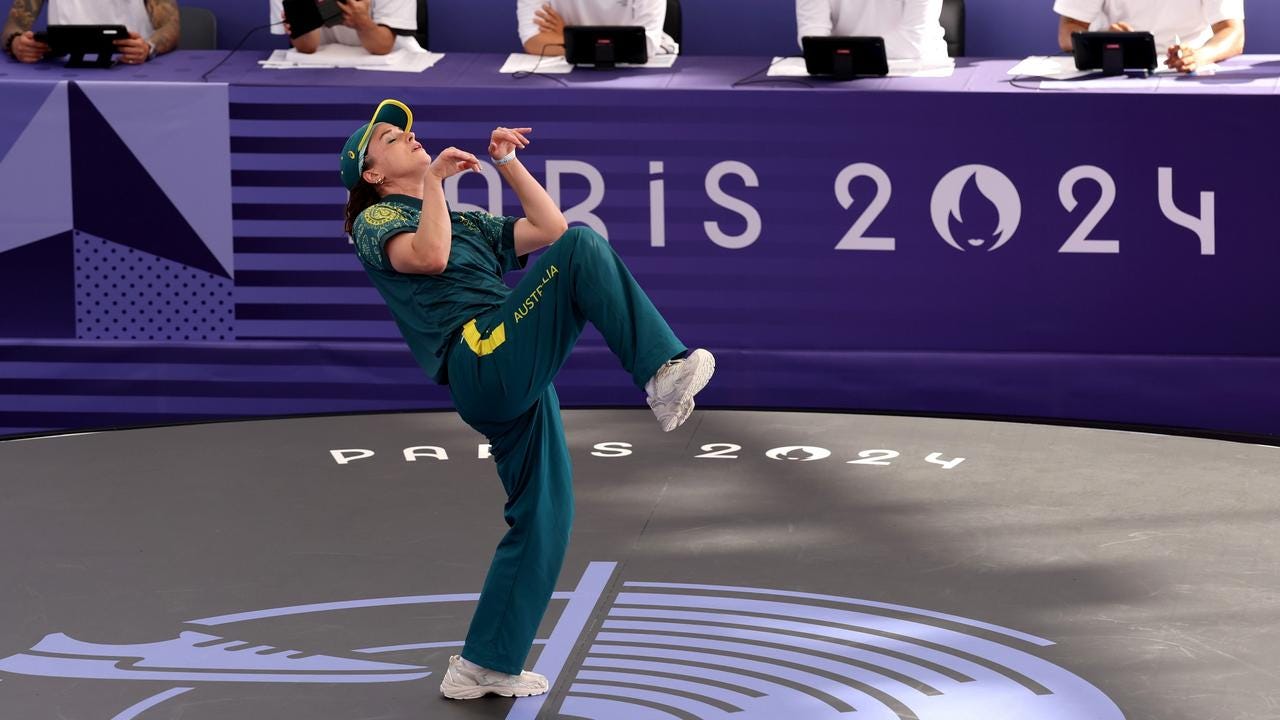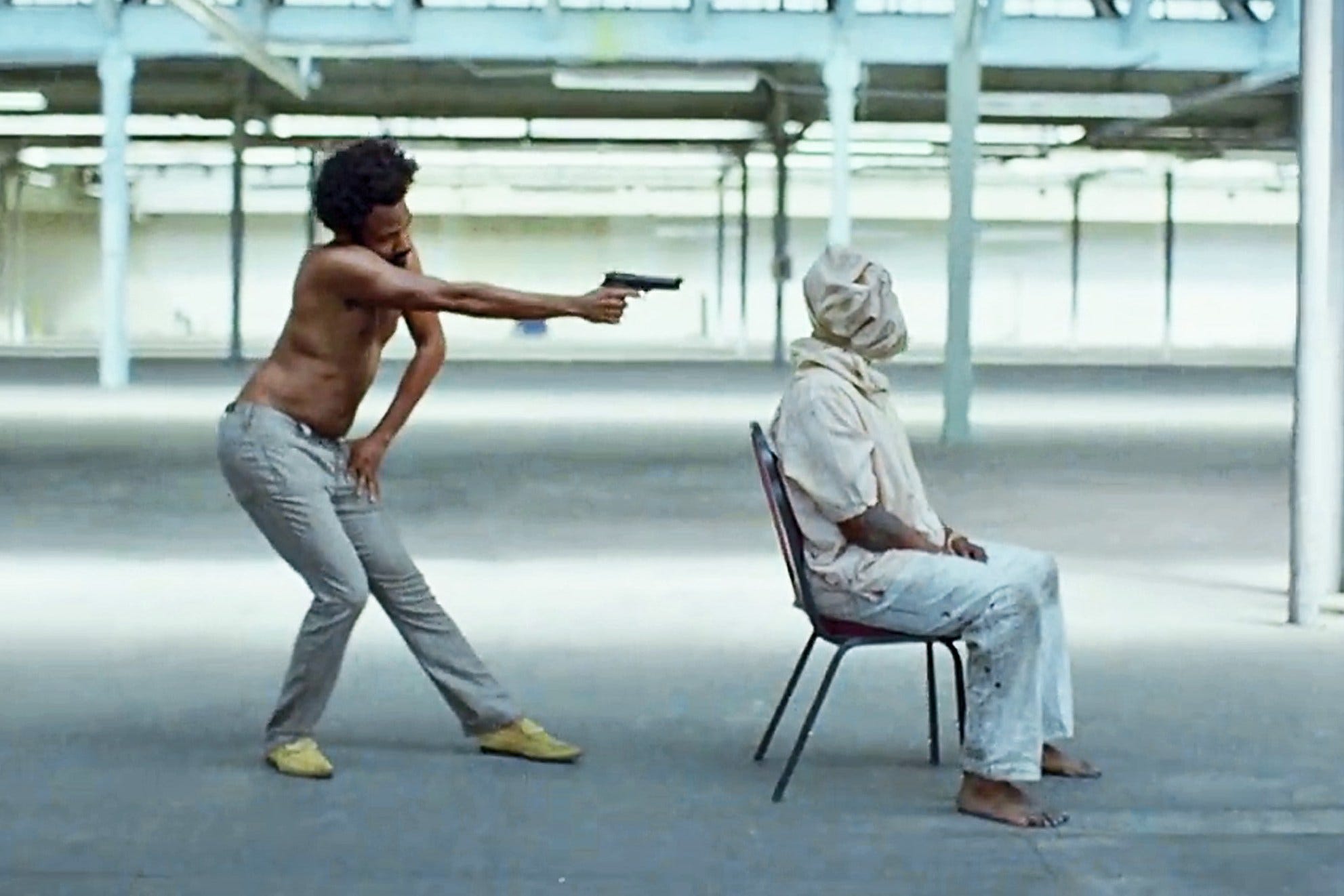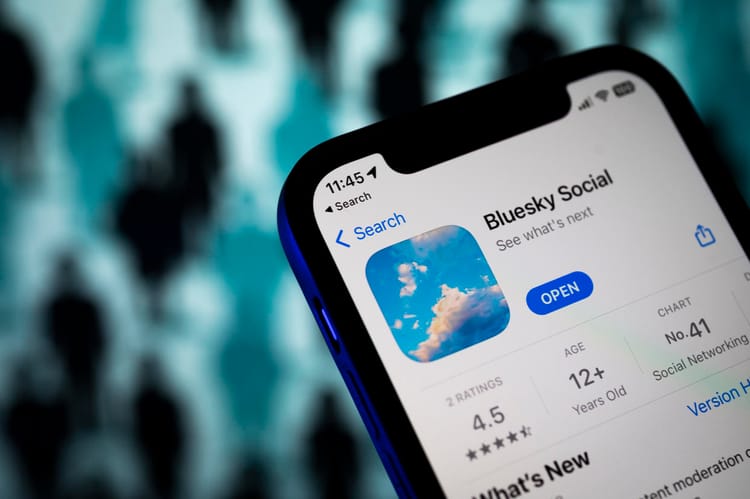Olympics Breaking: Here for a Good Time, Not a Long Time
I have a love/hate for the Olympics. They’re horribly corrupt. They displace people. They exacerbate class divisions.
But they also bring the world together in friendly rivalry. They teach us about cultures, traditions, places, and people’s lived experiences.
Nomad No More is reader-supported. I keep subscribing free because inclusion, but for those who can afford to support me, it goes a long way to finding the time to do this more.
Life’s complicated, and so are the Olympics.
This year, Breaking is on the world stage.
Me? Loving it. Give me more. Bring it back. Make it an Olympic mainstay. Legitimize it.
But that’s not happening.
Paris, being the Olympics of inclusion and diversity, is exhibiting Breaking because its association had the cash for it, I guess, and here we are — getting a one-time look at the New York City-street culture that has spanned the world.
I’m so mad that Los Angeles and Sydney are not planning to have Breaking in 2028 or 2032. Clearly, Australia’s dismal (even mocking) performance at these Olympic games shows they either have no understanding of Breaking culture, or no respect for it, or both. They’re obviously uninterested in celebrating, elevating, or even validating breakdancing.

But America?
The home of hip-hop? Ground zero of b-boy culture? The base of bass? Come on.
And this, friends, is where all that is wrong about the Olympics is crystal clear. It’s not about excellence, not really. It’s about money.
The Olympics are a pay-to-play world. It’s a poker game. There’s a buy-in. Can’t ante up? Not for you, chump.
Breaking might be the backbone of a multi-billion-dollar music industry, but, as a sport or fitness discipline, it does fuck all to put money corporate America’s pocket. It’s street culture — born of the streets, thriving in the streets. It’s Black culture, Latino culture, and the language of resistance and non-conformity.
So, Los Angeles, one of the hip-hop capitals of the world, will NOT be showcasing Breaking in 2028, as of this writing. I’m hopeful viewership and online chatter can help capitalist asshats behind that decision wake up and smell the 21st-century cultural cash cow.
The problem is, excellence in Breaking doesn’t need a coach, it needs community. And community doesn’t need dollars.
B-boys/girls are all about immediate feedback and challenging each other to one-up their performances through smack-talk and jibing. No training spaces and gymnasiums are needed — just a broken-down cardboard box on asphalt and a sunny day.
There’s no club or association or secret handshake needed, just a boombox and rechargeable batteries.
Any eight-year-old with an attitude and an empty parking lot can pick up breaking skills. It’s truly of the people, for the people.
Guess what’s coming to the Olympics instead of Breaking in 2028? Five sports, two of which I have no problem with — lacrosse, cricket — because they have international followings. Then, baseball/softball, which is, meh, fine, I get it. But also, flag football and… squash? Squash?
All those sports effectively require players to join a league or rent a facility to play, so they’re backed by organizations with paying memberships. They use Olympic publicity to drive people to their sports. (Can’t wait to see the sprint people make for buying squash rackets. Woohoo, a mad rush, I’m sure.)
Breakdancing on the world stage is a thorn in the fitness industry’s capitalist side, because God forbid people realize how incredibly athletic breaking is, or see how compelling battles can be, or how dang fun it is to just be around.
If they figure out a way to monetize the hell out of battles, and training, America might be more interested in supporting breaking as a culture.
But breaking, to its core, is about not being monetized, not being owned, not being subservient to norms. It’s about not paying for membership, but instead earning your place or flat-out taking what’s yours.
*
They say the revolution won’t be televised, but, in a way, kinda it was, with Breaking battles at this year’s Olympics.
Even for me, a 50-year-old white woman, Olympics Breaking competition is a symbol of a world I want to evolve into, where street culture matters more than, say, fucking squash.
Oh, YOU play squash? Fantastic, chap! Great. But I have never in my life had someone say to me “gotta jet, I’ve got a squash match to get to.”
The last time I gave squash any thought was when I lived three blocks from an ‘Athletics Club’ that cost five-figures-a-year to belong to, with some of the city’s only squash courts.
Squash requires a reservation, a deposit, and a membership, not to mention special non-marking sneakers, a racket, and other gear. Breaking requires a pair of kicks, any style. No one says “Let’s go!” and throws down into a spontaneous squash match, unlike Breaking, which can transcend class and place.
*
Because, really, the Olympics are all about class. They’re about people who can afford to be competitive, usually, and about those who can spend the financial splash to attend events — often flying around the world to do so.
Vancouver’s 2010 Olympics were the beginning of the end for me. It shattered the illusion of my city remaining livable in the future. Within two years of closing ceremonies, I had moved away from my hometown.
Money, at the time, was scarce for me. Never was that more glaring than at the Olympics. Either you could afford to be a part of it, or you were left on the outside of it, frozen out of your downtown, all the events. It threw a spotlight on what was unattainable for me.
The whole Vancouver film industry shut down overnight because no one could get filming permits. We suddenly all got laid off. Filming was messed up for months. I didn’t return to work full-time until about six months later. Olympics Displacement Syndrome ain’t a fun ailment to live with.
The Olympics are not an event that cares about the little people. It never has.
*
That’s why the Paris Games are special.
The Paris Olympics’ celebration of inclusion was obvious, from the opening ceremonies on out. With elevating hip-hop through Breaking at the Paris Games, a new global generation of hard-hitting breakers will be empowered.
The city of the Bastille, the city that overthrew the aristocracy, Paris, gave its nod to the counter-cultural and anti-establishment origins of breaking, and it firmly proves breaking isn’t just American culture now — it belongs to the world.
But gyms and fitness clubs and sports leagues won’t be particularly wild about that. Racists won’t, either. Or conservatives who prefer people just shut up and do as they’re told.
I can’t pretend to understand hip-hop, its culture, its music, or its dancing. I’m too white, too old. My people were hippies, man.
But I appreciate the culture and I can get excited by it now, albeit in small doses.
While I came of age when Run-DMC reached out to Aerosmith to create the first true rock-rap crossover track, I never went beyond the mainstream. I’m a guitar girl. I love a fuzzy amp and distortion pedal. Garage rock has my soul. But that’s my culture, too.
In my youth, I was ignorant, and often racist, about rap.
I stayed that way for a long time.
Over the years, though, rap and breaking have become a lens through which I’ve slowly learned about my own shortcomings and my wrong-headed worldviews that needed some fucking-up through cultures clashing.
For decades, I swallowed a lot of rap critiques from the POV of ‘the white gaze’. I have to credit So You Think You Can Dance? for giving me a new perspective on many forms of dance — and the music behind them. In time, aided by social media and the 'net, I learned more about rap and breakdancing, and with that knowledge came enthusiasm.
In the years since, people like Childish Gambino and Kendrick Lamar have used rap to confront and call out culture and oppression and systemic racism in a manner defying so many of those early white stereotypes about the genre. And look at how breaking and rap thrive in countries of the former Soviet Bloc, who lived with oppression and censorship for so long, or places like Japan, where the culture serves as backlash to the conformity demanded in their cultural norms.

*
I won’t pretend I am at all steeped in hip-hop culture, but more and more, I ensure I’m exposed to it and aware of it. And I am respectful of how these are lived experiences and cultural snapshots that we all need to be cognizant of, and provoked by.
And that’s the power of the Olympics.
Hopefully, Breaking will come back.
But if it doesn’t, know that it’s because Breaking can’t afford it. In part because it’s not a tool of the capitalism we’ve all come to loathe, but also, because the institutions who capitalize the most off membership dues are threatened by breaking’s power to cross class and culture lines. They’ll do what they can to decry and invalidate breaking as a discipline. This is especially true in the country whose systemic racism and police brutality gave rise to breaking and the truth-to-power spoken-word culture of rap.
As the world’s most capitalist country, breaking’s birthdplace has the most to lose from people figuring out that they don’t need a monthly pass to get the abs of their fantasies, just a boombox and a dream.
So, please, find a way to view the B-Boys and B-Girls of Paris 2024, and make it known to the moneybags around the world that this is a culture that deserves more inclusion.
In the everlasting words of Public Enemy, fight the power. Bring back Breaking.
Nomad No More is a reader-supported. If you subscribe for free, please share me widely to help me gain more readers. Thanks!


Member discussion